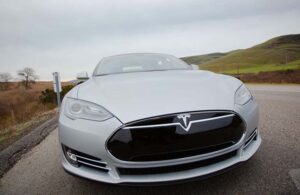Tesla researchers have recently revealed a new design for electric vehicle (EV) batteries that could last up to 100 years before needing to be replaced.
 The battery is one of the most critical parts of EV and one that could potentially make or break any EV on the market.
The battery is one of the most critical parts of EV and one that could potentially make or break any EV on the market.
Battery technology in EVs are even more relevant recently, thanks to the spike in lithium prices over the past year.
While Tesla and other electric vehicles initially used NCA and NCM batteries, LFP batteries are becoming increasingly popular of late, thanks mainly due to their cost advantages over other technologies.
The latest research was conducted by Tesla’s Advanced Battery Research division in partnership with Dalhousie University in Canada and was published in the Journal of The Electrochemical Society.
As per the paper, researchers have come up with a new nickel-based battery technology with a far longer shelf-life than the batteries currently used in electric vehicles.
The researchers claim that the new type of Tesla EV batteries can overcome some of the limitations of LFP or Lithium Iron Phosphate batteries, enabling them to last up to 100 years under certain conditions.
Existing technology for EV batteries can only create cells that last up to 20 years or around 200,000 miles before their capacity drops too low to power a vehicle.
However, by creating a new nickel-based battery that can last five times as long, Tesla and the researchers working on the new project hope to make EVs even more lucrative compared to gas guzzlers. That would be especially true as the new technology would retain the favorable properties of nickel-based batteries, including higher energy density.
One of the authors of the new paper is Jeff Dahn, the leader of Dalhousie University’s battery lab.
Dahn is one of the leading names in battery research and has been working on Li-ion batteries since their inception.
He is also said to be responsible for helping increase the life cycle of Li-ion batteries, enabling their adoption in the electronics and automotive industries.
Along with Dahn, the other authors of the paper include Michael Metzger, Jessie Harlow, Julian Oxner, Helena Hebecker, Eric Logan and Conner Aiken.
Tesla hopes that the new battery technology can be commercialized sooner rather than later.

